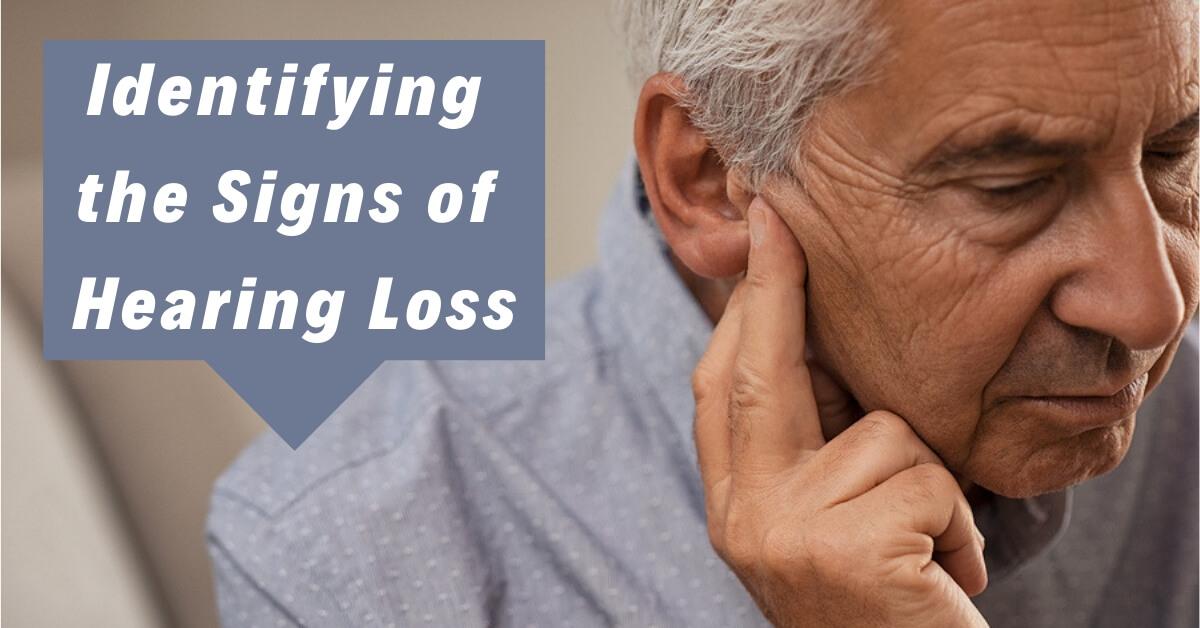- The Benefits of Being Social for Older Americans - February 29, 2020
- Common Excuses for Not Buying Hearing Aids - February 29, 2020
- How Treating Hearing Loss Improves Your Relationships - February 18, 2020
Hearing loss may seem like an obvious condition to identify, but it’s not as easy to notice as one may think. The signs of hearing loss can be vague and develop slowly, or they can be obvious and begin suddenly. Our ears are advanced and perceptive sensory organs. Just as other parts of our bodies show the effects of wear and tear as we age, so do our hearing systems.
To begin with, most people with hearing loss have problems only with specific sounds and in specified scenarios. Consequently, if you can hear normally on some occasions, you’ll have the tendency to pin the blame other factors or other people for the occasions you do have trouble hearing.
Secondly, hearing loss occurs slowly over the years, so it’s difficult to detect the slow progression. It may be more convenient to blame other people for mumbling or to turn up the TV volume a little higher, than to admit that you may have hearing loss. Potential health impacts from hearing loss can include headaches, muscle tension, and increased stress and blood pressure levels. Some studies have linked untreated hearing loss in adults to depression, fatigue, social withdrawal and impaired memory.
If you recognize any hearing loss symptoms in yourself or a loved one, it is highly recommended to visit a hearing wellness professional. The signs and symptoms of hearing loss can be subtle. You have to know what to look for, and while it’s convenient to be denial about hearing loss, it is important to be honest with yourself about the warning signs.
Common Signs of Hearing Loss
Ringing in the ears – Also known as tinnitus, this condition often occurs in conjunction with a hearing loss. Hearing aids make it easier to hear better, and with tinnitus sound masking therapies, they may also be able to alleviate the ringing in your ears.
Difficulty hearing normal household sounds – Hearing loss can make it hard to hear the doorbell, the phone ringing, or another person shouting your name from another room.
Trouble understanding TV dialogue – Speech is generally much more difficult to hear than other kinds of sound. This frequently shows itself as difficulty following movie or TV show plots.
Your phone, TV, or radio is at max volume – If you hear the TV, phone, or radio better than you can hear personal conversations, check out the volume settings on your technology. You may have these gadgets set at elevated volumes, while believing that everyone else talks too quietly.
You often request that people repeat themselves – Do you finding yourself saying “what?” a lot? Do you have often ask people to repeat themselves when you’re not facing them? Because hearing loss happens gradually, this may have become a regular habit in conversation, so the next time you’re conversing with someone, reflect on how often you’ve asked someone to repeat what they just said.
You often misunderstand what people are saying – Consonants are higher-pitched than vowels and therefore more difficult to hear. Seeing that consonants communicate the majority of the meaning in a sentence, speech comprehension suffers with hearing loss. Particular sounds and letters are more challenging to hear than others. You might find that you can hear the majority of the words in a sentence, but you have to frequently try to fill in the blanks. A common complaint from people with hearing loss is, “I can hear, but I can’t understand.”
Difficulty hearing in environments with a lot of background noise – As hearing loss worsens, competing noise becomes more of a challenge. You might manage to hear speech in quiet environments, but it becomes increasingly difficult to follow conversations in a noisy setting, like a restaurant or a party.
Difficultly hearing when your back is to the speaker – You may be dependent on lip reading, nonverbal communication, and other tips to meaning significantly more than you realize. When you’re not facing the speaker and cannot rely on visual cues, you may have trouble understanding speech.
People complain that you shout or have the TV volume too loud – People around you may remark that you have the television volume too loud or that you have the tendency to shout. It might not feel this way to you because you’re compensating for your hearing loss, but if a loved one does bring up a concern, it may be time for a hearing test!
Visit Us at All Ear Doctors
If you believe that you may be experiencing one or more of these signs of hearing loss, it is recommended that you visit a hearing health care specialist as soon as possible to get your hearing checked. The sooner you deal with hearing loss, the faster you can get back to living a rich and healthy life!
At All Ear Doctors, we provide comprehensive hearing tests and fittings. Contact us today to schedule an appointment.

